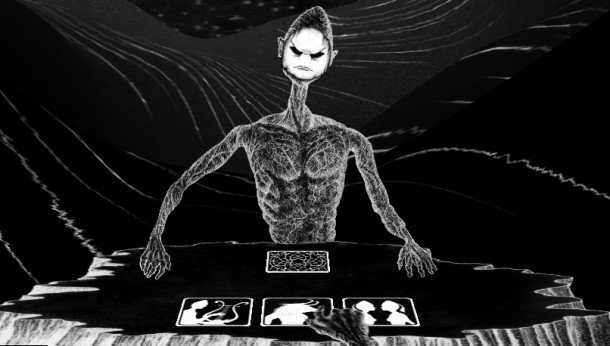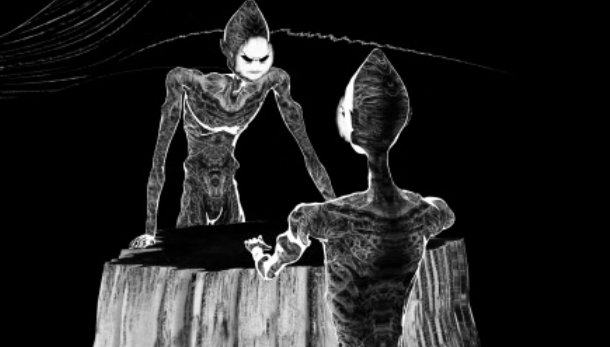Will Love Tear Us Apart: a study on music, miscommunication and broken relationships

Gordon Calleja (and fellow Mighty Box co-conspirators') online game Will Love Tear Us Apart sets itself up against the song : each chapter is based on a verse of the morose Ian Curtis lyrics. It's impossible to extricate the two from each other: the comparison has already been made. I succumbed, and rebelled. Inspiration doesn't have to be a comparison, and yet, this game felt like a very personal slant had been taken on one of post-punk's most adored songs.
The song itself tears you apart. At hearing that first strum you can't contain your excitement; the dancefloor realises that this is it . It is happening again. It gets more excited, drums defibrillate hearts, you feel like your heart might not even survive the beginning of Joy Division's sleeping masterpiece. But as it settles in, there's a horrible darkness that comes over you, a dark realisation that you can never return to the euphoria of those opening bars. You drift into the rhythm and Joy Division witches you into that limbo between crying and not: that's the rending part. Curtis holds you there, just above the surface, and it slowly eats away at your insides. It's one of music's greatest relationship metaphors, a dark love letter, a reaction to the simple messages that pop had years before bound itself to.
Is there a way that games can convey these competing, complex, ambitious contradictions? In particular, does Gordon Calleja's game do that?

There's no beginning euphoria in the game. You are thrust into a bleak black and white world with jagged edges and thin lines, where two humanoids draw cards against each other: you pull a card to react to the other person's argument. You can pull “I need to stay calm” card, a “I'm getting angry” card, or a “Let me try to understand” card. One person will devour the other.
The second part is set within a labyrinthine set of intestines, which two characters must negotiate at the same time: the instructions inform you that you are trying to avoid the pain of breaking up by both heading towards the light in the centre.
The third part of the game is where you decide how the misery concludes: in a horrible break up, continual circles, or in drifting away. You choose your symbol, go towards it, and walk the path of the symbol on the floor to indicate your resignation. Choose the swirl, and you are doomed to repeat the process through again.
The game is beautifully made, and so oppressive in spirit and mechanics that you feel doomed, like a tyrannical spirit of your past relationships is looming over your shoulder. The black and white animations and images are grim; and the outlook and words so bleak that it evokes a feeling of stomach-grinding ache. The card game is somewhat cruel in its tendency to overstay its welcome - just like relationship arguments, and the realisation in part two that you will always screw one character over is in itself heartbreaking. Part three is a cathartic state: this is where you decide how long you will stay in this nightmarish cocoon.
The biggest gaming news, reviews and hardware deals
Keep up to date with the most important stories and the best deals, as picked by the PC Gamer team.
This is the perfect way to convey the feelings of an oppressive relationship: the constraints of the design, the feelings of frustration the limited options and controls press you to have, the music (all original, and not Joy Division) conveys that caught-in-spider-web grate. The feelings the game conveys most effectively is that of hopelessness, frustration and repetition. In that way Love Will Tear Us Apart may not approach the rhythm and beat of Joy Division's song, but it shows that games are certainly as powerful, if not equally adept at punching an idea through us, as music.
Excuse me, I'm off to kick a can down the street.
You can play the game for free on the Will Love Tear Us Apart site .

